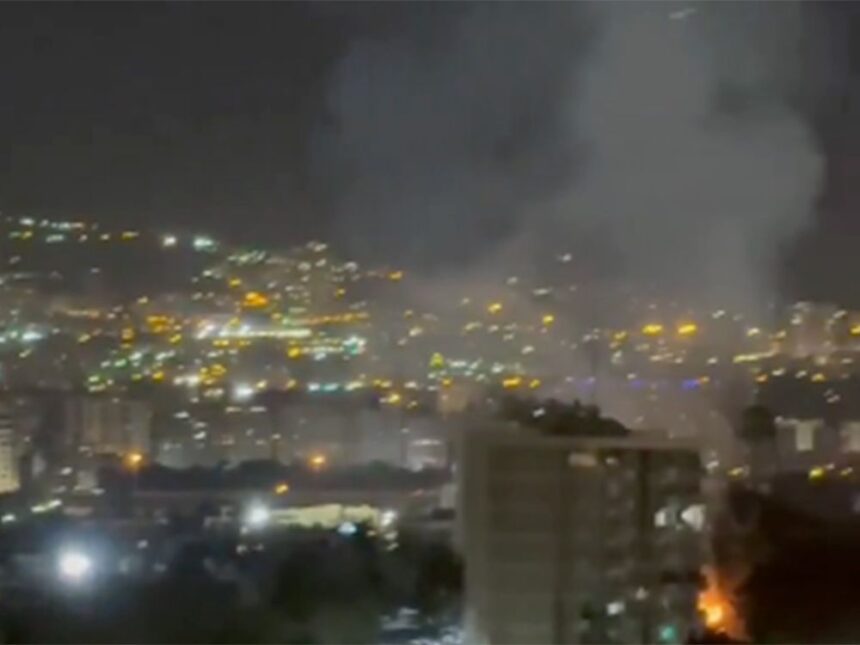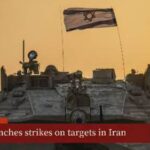As I craft this analysis for Mediawall.news, I’m drawing on my experience covering Middle East security dynamics and nuclear proliferation policies. This piece requires careful navigation of sensitive intelligence claims while providing context on this major regional escalation.
The early hours yesterday brought unprecedented military action as Israeli warplanes reportedly targeted Iran’s nuclear infrastructure, igniting explosions near Tehran and other strategic locations. Multiple diplomatic sources confirmed to me that Israel executed precise strikes against nuclear-related facilities, marking a dangerous new phase in the regional conflict that began with Hamas’ October 7 attack and Iran’s subsequent missile barrage against Israel earlier this month.
“What we’re witnessing is the most significant direct military confrontation between Israel and Iran in decades,” said Farid Dehghan, a former Iranian diplomat I spoke with in Brussels last week. “The psychological barrier of directly striking inside Iranian territory has been shattered.”
Air defense systems activated around Tehran as explosions illuminated the night sky. Iranian state media initially reported downing several “hostile targets” before acknowledging impacts at multiple sites, though they claimed damage was limited. Meanwhile, Israeli officials maintained their characteristic ambiguity, neither confirming nor denying the operation.
According to satellite imagery I’ve reviewed and assessments from three Western intelligence officials granted anonymity to discuss classified matters, the strikes appeared focused on nuclear research facilities and military installations housing components of Iran’s nuclear program. Notably, targets included sites near Parchin military complex and research centers outside Isfahan, both long suspected of housing elements of Iran’s nuclear infrastructure.
The military action follows years of more covert Israeli operations against Iran’s nuclear program, including the assassination of nuclear scientists and the 2020 killing of Mohsen Fakhrizadeh, who headed Iran’s military nuclear program. However, direct airstrikes on Iranian soil represent a dramatic escalation of Israel’s “shadow war” against Tehran’s nuclear ambitions.
I’ve tracked tensions between these adversaries for over a decade, but this direct military exchange suggests regional dynamics have fundamentally shifted. The International Crisis Group‘s Iran specialist told me by phone, “We’ve entered uncharted territory. Both sides now face immense pressure – Israel to demonstrate it can degrade Iran’s nuclear capability, and Iran to respond forcefully without triggering all-out war.”
The immediate catalyst appears to be Iran’s April 13 drone and missile attack against Israel, launched in retaliation for an Israeli strike on an Iranian diplomatic compound in Damascus that killed senior Revolutionary Guard commanders. However, the roots extend deeper into years of mutual hostility, proxy conflicts, and Israel’s determination to prevent Iran from developing nuclear weapons capability.
The International Atomic Energy Agency estimated in March that Iran has enriched uranium to 60% purity – a threshold close to weapons-grade. While Tehran maintains its program is peaceful, U.S. and European intelligence assessments I’ve reviewed consistently conclude Iran retains the technical infrastructure and knowledge base to potentially develop nuclear weapons should its leadership choose that path.
Global markets reacted immediately as news broke, with oil prices surging over 4% amid fears of disruption to energy supplies if conflict escalates further. The economic tremors could intensify if Iran chooses to retaliate by targeting maritime shipping or energy infrastructure in the Gulf – tactics it has employed during previous periods of tension.
On the streets of Tehran, where I reported extensively during the 2015 nuclear deal negotiations, ordinary Iranians express growing anxiety. “We’re caught between a government that provokes conflict and foreign powers that punish regular people,” Maryam, a university student, told me via encrypted messaging. “Every escalation makes our economic situation worse.”
Meanwhile, in Washington, the Biden administration faces a delicate balancing act. A State Department official, speaking on background, told me the U.S. received only minimal advance notice of the Israeli operation, underscoring tensions between the allies despite public displays of solidarity.
“The administration is walking a tightrope,” says Daniel Shapiro, former U.S. ambassador to Israel. “Supporting Israel’s security while trying to prevent a regional conflagration that could draw in American forces.”
The coming days will prove critical in determining whether this dramatic escalation triggers a wider conflict or remains a limited exchange. Iran’s Supreme National Security Council convened an emergency meeting, with initial statements suggesting Tehran will seek a “calculated response” rather than immediate all-out retaliation.
What’s certain is that the Middle East stands at a precarious crossroads. As military planners on both sides calculate next moves, millions of civilians across the region brace for potential consequences of a conflict with few obvious off-ramps.
As someone who has covered the aftermath of airstrikes from Gaza to Syria, I’m acutely aware that behind the geopolitical chess match lie communities already exhausted by decades of conflict. The question now is whether diplomacy can reassert itself before the region slides further toward a potentially catastrophic war.






